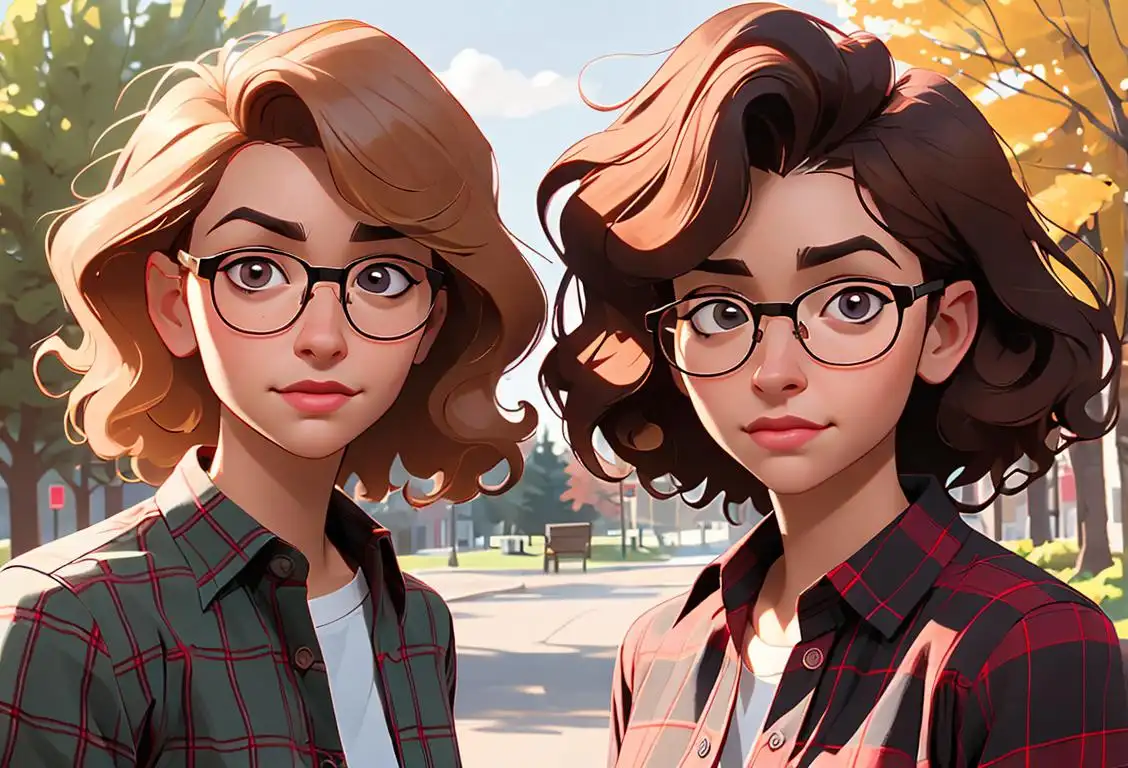National Look Alike Day

It's said that everyone has a doppelganger somewhere in the world and National Look Alike Day is all about celebrating this fascinating phenomenon. Every year, on April 20th, social media becomes a carnival of confusion as people share photos of themselves alongside their non-related, yet strikingly similar companions, or even unknown people who could pass as their twins.
When is Look Alike Day?
It's national look alike day on the 20th April.
A Bit About National Look Alike Day
Funnily enough, National Look Alike Day is exactly as it sounds! On April 20th, we zero in on that eerie sensation of spotting folks who look strikingly similar to ourselves or others. Whether it's your sister's colleague who could pass as your long-lost cousin; or a blockbuster actor who somehow looks startlingly similar to your high school mathematics teacher, each of us has had at least one of those 'double-take' moments.
How to Celebrate?
Reveling in National Look Alike Day is hilariously simple. Buddy up with your carbon copy, twig your look to exactly mirror theirs and deluge social media with your uncanny portraits. You can also pay homage to this kooky day by hosting twin-look contests, where pairs strive to replicate each other’s attire, makeup, hairstyle, and poses. And hey, if you're unable to track down your mirror-image, just go creative and dress up as your favorite celebrity or fictional character and join the fun!
The History Behind
Believe it or not, the creation of National Look Alike Day dates back to the 1980s. It was first conceived by a hard-nosed reporter who noticed he was being mistaken for a famous TV personality. Once the hilarity of being taken as a 'celebrity doppelganger' subsided and after copious mugs of coffee, he declared April 20th as the day to acknowledge all the unsung lookalikes out there.
Surprising Instances
This day has had its fair share of bewilderment. Internet history is teeming with situations where this day was used to pull pranks on online attendees by swapping speakers who were look-alike or teachers playing tricks on students by conducting classes for each other. Just imagine the fun we are talking about!
History behind the term 'Look Alike'
1803
Coining of the term 'look alike'
The term 'look alike' was first coined in 1803 to describe a person who closely resembled another person in appearance. This term was used to depict individuals who shared similar physical features, facial expressions, or overall resemblance. In the early years, the term mainly referred to individuals who resembled prominent figures or celebrities.
1910
Celebrity look-alikes gain popularity
Around 1910, the concept of celebrity look-alikes became increasingly popular. These were individuals who capitalized on their resemblance to famous personalities for entertainment purposes. They would imitate the appearance, mannerisms, and style of well-known figures to entertain audiences. The fascination with celebrity look-alikes grew as people enjoyed the idea of encountering someone who resembled their favorite stars.
1960
Look-alike contests emerge
By the 1960s, look-alike contests began to gain popularity as a form of entertainment. These competitions invited individuals who believed they resembled a particular celebrity to participate. The contests involved assessing the contestants' overall resemblance, including physical features, clothing, and behavior. Look-alike contests provided a platform for people to showcase their incredible similarities to famous individuals and receive recognition for their resemblance.
1978
The term 'doppelgänger' gains attention
In 1978, the term 'doppelgänger' gained attention as an alternative term to describe look-alikes. Doppelgänger, derived from German folklore, refers to a double or ghostly counterpart of a living person. This term added a sense of mystery and intrigue to the concept of look-alikes, emphasizing the uncanny resemblance between individuals. The use of 'doppelgänger' further heightened fascination with the phenomenon of resembling someone else.
2000s
Internet facilitates look-alike discoveries
With the advent of the internet and social media in the 2000s, discovering and sharing images of look-alikes became significantly easier. Online platforms enabled people to upload and compare photos of themselves or others with celebrities, historical figures, and even fictional characters. These digital tools have allowed individuals across the globe to identify and connect with their look-alikes, reinforcing the notion that there is a remarkable similarity between unrelated individuals.
Did you know?
Fun fact - Did you know that American psychologist William Moulton Marston, who created the superhero Wonder Woman, believed that everyone has a look-alike except for himself! Talk about being unique!Tagged
awareness fun loved onesFirst identified
20th April 2015Most mentioned on
20th April 2016Total mentions
2340Other days
Compliment Day
Cheese Pizza Day
Pumpkin Day
Medal Of Honor Day
Guac Day
Foundation Day
Suicide Prevention Day
Memorial Day
Cancer Survivors Day
Bacon Day









